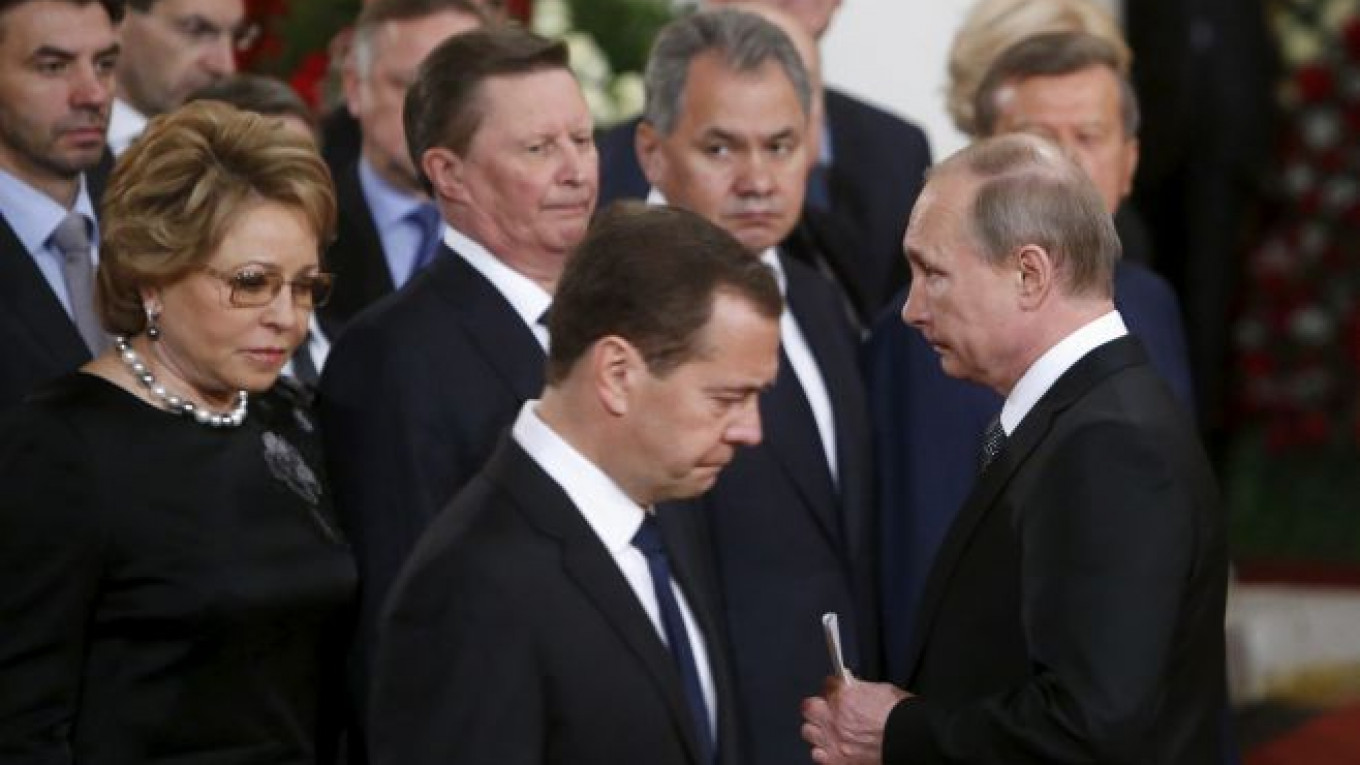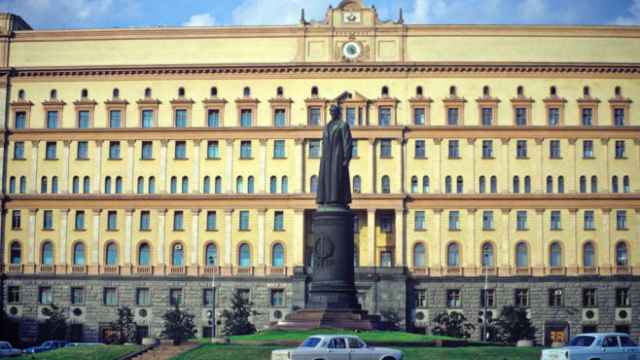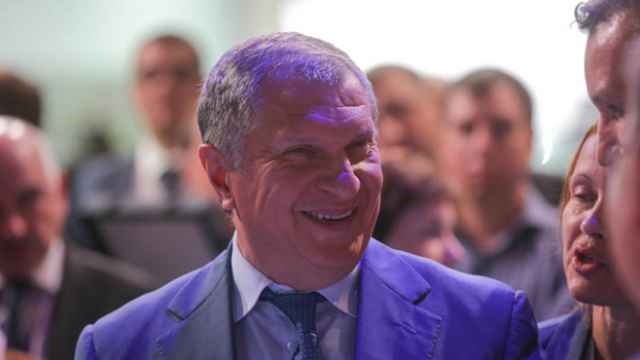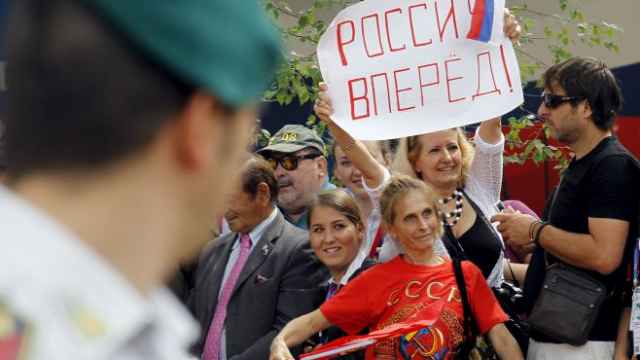In an effort to economize, the Finance Ministry encroached on sacred ground by suggesting that the country celebrate anniversaries of major historical events only once every 100 years. The Russian authorities are agonizing over the impossible task of slashing expenses while making it look as if nothing has changed.
This is how it looks in practice. The Finance Ministry announces that beginning in 2017 it will gradually reduce the number of state employees in public universities from the current figure of 800 per 10,000 citizens aged 17 to 30, to 750 — an actual reduction of 100,000 jobs. Meanwhile, the Education and Science Ministry announces that it has no plans to cut such jobs.
Finance Minister Anton Siluanov believes the government has approved the proposal to reduce the indexation of social spending, including outlays for pensions. Meanwhile, Deputy Prime Minister for Social Affairs Olga Golodets issues a statement saying that such a plan "does not correspond with reality" because no decision has yet been made.
The economic bloc of the government declares its support for raising the retirement age. Meanwhile, the social bloc of the same government states its opposition to the plan.
Prime Minister Dmitry Medvedev is trying to reconcile these opposing views by repeating the mantra of formulating a "realistic budget" while "preserving priority social spending." However, it is next to impossible to decide anything without Kremlin approval. Only days ago, Medvedev held a meeting at which officials had planned to discuss the indexation of social spending, but ultimately did not.
Much has been written about the fact that social spending has significantly outpaced the growth in productivity over the last 10 years and that the level of budget expenditures is incompatible with the state of the economy.
The Kremlin might make cuts to either defense or social spending — both are currently on the table.
This is practically a pre-election year when considering that State Duma elections are now slated for September 2016 and that presidential elections scheduled for 2018 might also get bumped up if circumstances necessitate. If the authorities slash social spending, they risk alienating their core electorate.
But making cuts to defense spending means ending support for Soviet industry — and its attendant social services in the regions — and to the army and the patriotic political agenda that now forms the only ideological basis for support of the ruling regime.
The problem is that something always complicates the task for the authorities — either outdated industries or exorbitant social spending, the call for structural reforms or the accumulated negative effect in recent years from their failure to implement those reforms. The inertia that characterizes the work of the president and government has led to the current impasse. And that inertia continues.
Of course, the authorities will eventually make the tough choices as to what to cut and what to spare, but they will make those decisions sporadically, unpredictably and with plenty of PR for damage control.
For example, two years ago when the authorities decided to eliminate pension savings, official denials continued until leaders realized that the number of disgruntled citizens was relatively small and that most had already shrugged their shoulders and given up on hoping for anything more.
Andrei Sinitsyn is a correspondent and op-ed contributor for Vedomosti. Pavel Aptekar is a historian and commentator for Vedomosti. This comment originally appeared in Vedomosti.
A Message from The Moscow Times:
Dear readers,
We are facing unprecedented challenges. Russia's Prosecutor General's Office has designated The Moscow Times as an "undesirable" organization, criminalizing our work and putting our staff at risk of prosecution. This follows our earlier unjust labeling as a "foreign agent."
These actions are direct attempts to silence independent journalism in Russia. The authorities claim our work "discredits the decisions of the Russian leadership." We see things differently: we strive to provide accurate, unbiased reporting on Russia.
We, the journalists of The Moscow Times, refuse to be silenced. But to continue our work, we need your help.
Your support, no matter how small, makes a world of difference. If you can, please support us monthly starting from just $2. It's quick to set up, and every contribution makes a significant impact.
By supporting The Moscow Times, you're defending open, independent journalism in the face of repression. Thank you for standing with us.
Remind me later.






